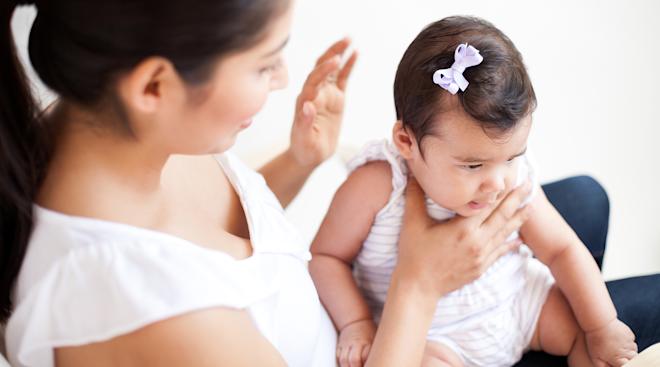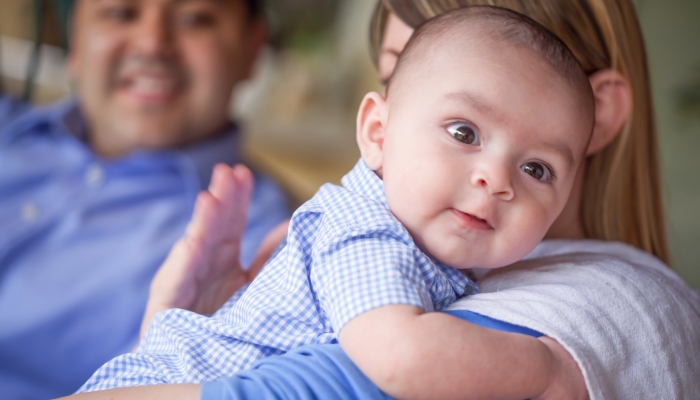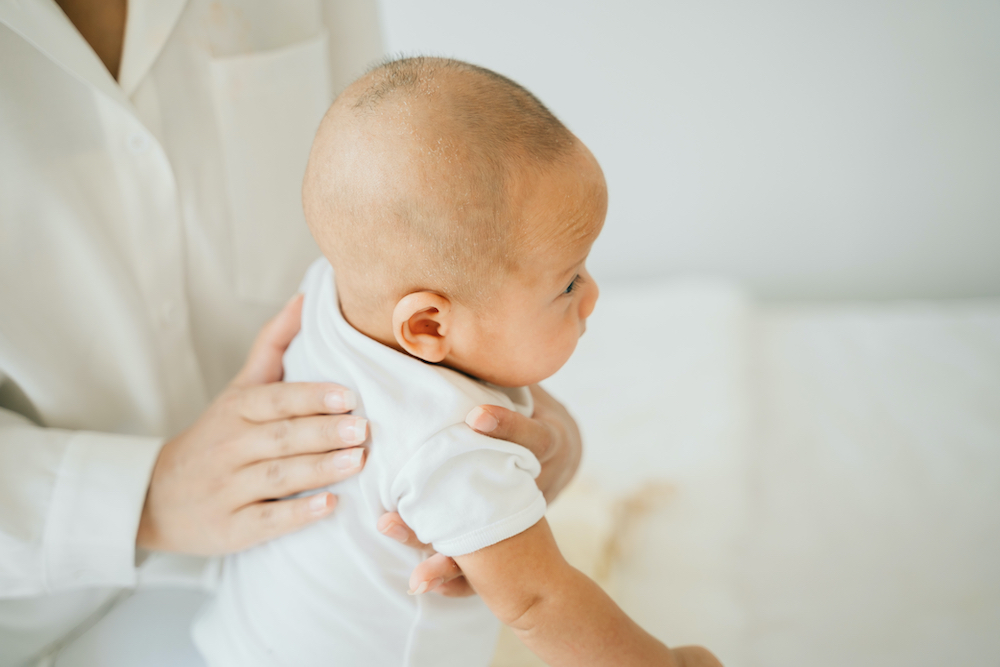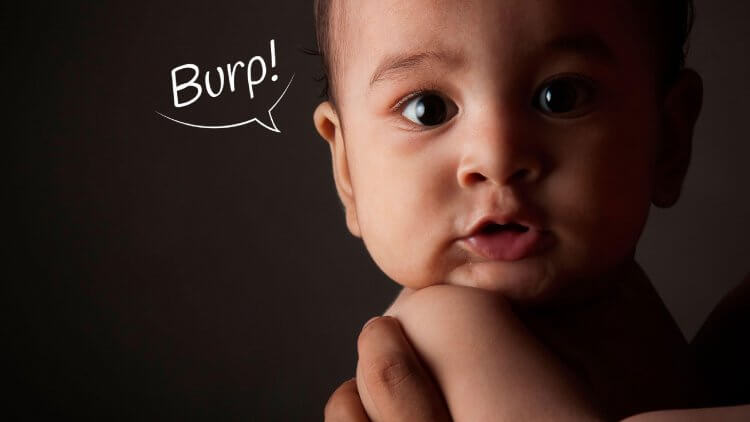Your Baby Won’t Burp may also gulp down air during feedings, despite all the goodness they are consuming. This is normal and can be relieved by burping or winding. What should you do if your child won’t urinate? Let’s see.
What should I do if my Baby Won’t Burp After Being Fed?
Mama, first things first: Don’t be worried if your baby boomers doesn’t always burp. Some babies love to do their best Homer Simpson impression while others aren’t as fond of burping.

However, it is possible for infants to get gas trapped while they are feeding. Here are some signs that your baby clothes might need help getting rid of trapped gas:
- Feeding by grimacing
- Wriggling or fidgeting during meals
- Do not drink more, even if you’re still full.
- Normal behavior: Standing up higher than usual
What happens if your baby stops urinating?
It’s possible to be concerned that your baby might have stomach problems if they stop burping, but this is not true.
- The trapped air will eventually escape.
- While you may have a cranky baby for a while it will not get any worse.
How do you burp your Baby the Best?
Multiple positions are possible to move trapped gas.
Notice: In case your baby has more than one burp, you might want to carry a burp cloth or a blanket over your shoulder. As you gently lift your alien baby, support their neck and head. Gently pat their back.
Your baby should be placed on your knees, with their stomach facing down. You may see them doing a Superman pose on your knees. From this position, you can pat their backs.

Support your baby’s chest with your right hand and place them on your lap facing you. Your baby should be leaned forward. You can pat their back lightly with your free hand.
- Try cupping your hands instead of patting them flat.
- This is a gentler, more effective method of burping, especially for newborns.
What if your baby doesn’t urinate?
You’ve tried rocking, patting and almost everything else but the belch won’t stop. These are some ways to move your baby if she still doesn’t want to burp.
Burping your adorable baby before or after you feed them is a better option. A good indicator is every two to three ounces if you are bottle-feeding. When switching from breast to bottle-feeding, you can try burping your baby.
Your baby will feel your hand on their stomach. This will help you target the right area to release trapped gases.
Move around the house with your baby by strapping him or her into a baby carrier or sling. You might find that motion helps to get things moving.
Don’t worry if none of these methods work. These are just a few of the many techniques you can try
Baby massage: Place your baby flat on its back, with their legs extended in the air. Slowly move your baby’s legs toward their stomach or pedal their bike. To encourage burping, you can massage their stomachs in clockwise circles. There are many other benefits to baby massage, too.
Wait. It may take some time for baby’s formula or milk to come down. It is possible to encourage babies to burp by waiting 10 minutes before they start to burp.
What should I do if my Baby Won’t Burp Bursting?
- If your child still doesn’t want to burp, or they don’t seem to be in any discomfort, it’s possible they are just a non-burping child.
- If your baby is constantly unwell or upset during feeding and can’t seem to get a burp out, you might want to consult your doctor.
- They will likely talk to you first about common conditions such as acid reflux and food sensitivities.
How to deal with a Baby Won’t Burp who boop because everyone’s stressed now?
Babies need assistance with almost every bodily function, even burping. Sometimes, the bubble won’t rise. If your baby is unable to burp, it will likely notify you. Knowing what to do can help you both save you a lot of stress and discomfort.

Simple changes to your routine can help if your baby is still refusing to burp despite trying different burp techniques. Romper was told by Darcy Sauers via email that the most common mistake in burping is when parents place their baby on their backs. A small adjustment can make all of the difference in this situation. You will be more likely to get the burp out if you lower your hand so that it touches right behind your stomach.
- Wear the Baby
Get out your Babybjorns and start moving. Deborah Malkoff Cohen, registered dietitian, nutritionist, says, “I have recommended to their parents that they wear the baby in carrier after their meals if possible while doing household chores etc.” She explains that the upright position aids baby’s digestion and can move gas around (and hopefully out) by moving the baby. Babywearing, in addition to helping with burping, can also foster trust and bonding between you and your baby. It also allows you to take a break for a few minutes.
- Do not panic
Do not rush to burp. Tori Hamilton, an obstetrical registered nursing, lactation consultant and founder of Mothericity.com, says that babies are more likely to be sleepy right after finishing a feeding. It can be difficult to burp a baby who is tired. As she suggests, it is a good idea to wait 10 to 15 minutes after a feeding before you try to burp. Some babies need more time.
- Get up (and down)
Hamilton says that burping can be helped by changing elevation. Hamilton says that burping can be caused by changing elevation. Hamilton suggests moving with your child after eating to release burps.
Do Not Wait for Your Baby to Have Complete Feeding
Oller says that mid-meal burps can help things move along. “One of the easiest ways to do this is to burp more often.” If your baby is breastfed, Baby Won’t Burp them halfway through the meal. Oller suggests that bottle-fed babies stop at 2 to 3 ounces. You’ll eventually get used to a routine and be able to tell when your baby needs a burp break.

- Use Infant Massage
A good rubdown can be very relaxing for even little ones. Dr. Oller explains that there are many ways to massage a baby’s abdomen.
- Use Gripe water with Caution
Gripe water can sometimes be sold as a treatment for gassy babies or colicky babies. Experts generally do not recommend using it. I would not recommend gripe water or any other over-the-counter preparations without consulting your doctor. Dr. Oller explains that some of these preparations may contain alcohol or sucrose which is not suitable for infants. It might not be beneficial for your newborn baby . Hamilton says that while grip water may be effective in reducing colic due to gas pains, its effectiveness is not proven.
